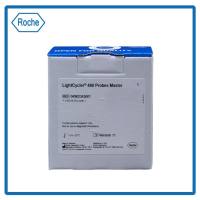The S1 nuclease protection assay involves the hybridization in solution of a single-stranded DNA probe to RNA, followed by digestion with S1 nuclease, which is specific for single-stranded nucleic acid (1 ). The protected probe is measured by first resolving the sample by denaturing gel electrophoresis, followed by autoradiography and densitometry. The amount of protected hybridized probe is proportional to the complementary RNA in the sample. The S1 nuclease assay is sensitive (usually 10-to 100-fold more sensitive than Northern blot hybridization), reproducible, and quantitative. The assay is also more rapid than Northern blot hybridization, since hybridization is performed in a small volume and is thus completed during an overnight incubation, and there is no prehybridization or transfer. The S1nuclease assay is also more reliable than dot blot assays because the size of the product is determined. Despite these advantages, the S1 nuclease assay is often avoided by investigators who do not wish to invest the time in generating the single-stranded probes. In this chapter, we describe a simple method for generating single-stranded DNA probes by arithmetic polymerase chain reaction (PCR), which we have used in an S1 nuclease assay (2 ) to measure PRL mRNA. This procedure is similar to one reported by Blakeley and Carman (3 ).






